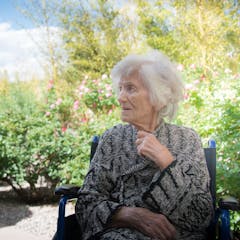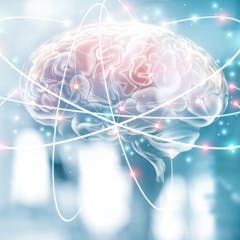
Articles on Dementia
Displaying 1 - 20 of 395 articles

Children with childhood dementia progressively lose all previously acquired skills and abilities, such as talking, walking, learning, remembering and reasoning.

A loss of visual sensitivity could be an early predictor of dementia.

The traditional Japanese diet contains plenty of rice, fish, pickles, green tea, soybeans, miso and shiitake mushrooms.

When dementia patients on Medicare enroll in hospice, they lose other crucial supports and services.

Lives that matter: new novels by Trish Bolton and Graeme Nash defy the stereotypes of older women in fiction.

Current methods of screening for dementia have a range of limitations. Using virtual reality for cognitive screening is still a new area, but it’s showing promise.

Medicare covers an annual well-check visit that could potentially identify cognitive issues, but only about half of beneficiaries take advantage of them.

Middle age could be a period when we can detect early risk factors of future cognitive decline.

A new study suggests that talking speed is a more important indicator of brain health than difficulty finding words.

A study of US veterans found that one in ten had been wrongly diagnosed with dementia, when they actually had a treatable liver condition.

Sleep appears to play an essential role in a number of brain functions, such as memory. So good quality sleep could play a vital role in preventing dementia.

Artificial intelligence helped identify the blood proteins that are the best predictors of dementia.

By 2050, 25% of the UK population will be over 65, yet only 9% of the country’s current homes meet basic accessibility standards.

Family caregivers who have stronger support networks and positive communication with loved ones tend to be more resilient.

A closer look at the study suggests something else might explain the high figure.

On Feb. 7, 2024, the EPA strengthened the federal limit for annual levels of fine particulate air pollution, or PM2.5. Many serious health effects have been linked to PM2.5 exposure.

Listening to music, though, doesn’t have the same benefits.

Scientists have published the first evidence that Alzheimer’s can be transmitted from person to person. Patients received human growth hormone from the tissue of donated brains.

Montréal is home to one of the world’s largest brain banks, the Douglas-Bell Canada Brain Bank, where discoveries about different neurological and psychiatric diseases are made.

Can a trip to a museum help cure mental dullness? Here’s what the science has to say.
